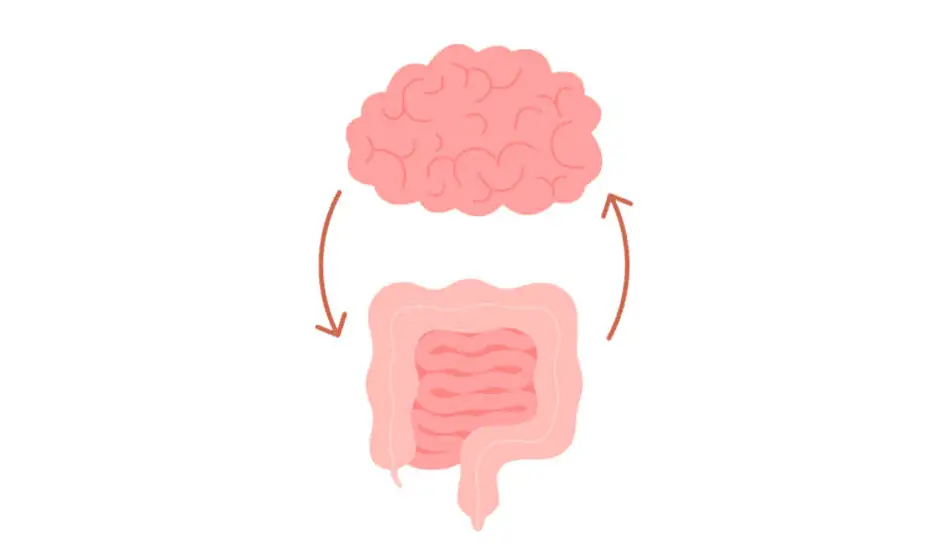The Colon-Brain Connection
The colon, also known as the large intestine, is an essential part of the digestive system. Its primary functions include digesting food, absorbing nutrients, and eliminating waste from the body. While the colon may not be a brain, it still plays a vital role in overall health, including mental health.
The colon has often been referred to as the “second brain,” mainly due to the enteric nervous system (ENS) found in the gut. The ENS is a complex network of neurons that controls and regulates the digestive system independently of the central nervous system (CNS). The ENS has approximately 500 million neurons, which is more than the spinal cord or peripheral nervous system.
The ENS can sense changes in the gut environment and initiate appropriate responses without CNS input, making it a crucial component of digestive health. The ENS also communicates with the CNS, which can influence and be influenced by emotional states. This communication has been called the gut-brain axis and is the basis for the relationship between the colon and mental health.
The Gut-Brain Axis and Mental Health
Research has shown that there is a strong connection between the gut and the brain. The gut-brain axis is a bidirectional communication system between the gastrointestinal tract and the CNS. The gut can send signals to the brain, and the brain can send signals to the gut, influencing each other’s function.
Studies have suggested that disturbances in the gut microbiota composition can lead to changes in behavior and cognitive function. Gut bacteria produce neurotransmitters, such as serotonin and dopamine, that affect mood and behavior. Serotonin, for example, is known as the “feel-good” neurotransmitter and is responsible for regulating mood, appetite, and sleep.
Approximately 90% of serotonin is produced in the gut, highlighting the importance of gut health in mental health. Studies have also shown a link between gut inflammation and the development of depression and anxiety.
A poorly functioning colon can cause inflammation, leading to an imbalance in the gut microbiota and increased permeability of the gut lining. This imbalance can result in systemic inflammation, which has been linked to numerous mental health disorders.
Research has shown that individuals with irritable bowel syndrome (IBS), a common digestive disorder that affects the colon, have a higher prevalence of depression and anxiety compared to those without IBS. Furthermore, treating IBS symptoms can improve mental health outcomes.
Maintaining Colon Health
Maintaining a healthy colon is essential for overall health, including mental health. Here are some tips for keeping the colon in top shape:
1. Eat a high-fiber diet.
Fiber is essential for promoting regular bowel movements, preventing constipation, and nourishing the good bacteria in the gut. A diet high in fiber includes whole grains, fruits, vegetables, legumes, nuts, and seeds.
2. Drink plenty of water.
Dehydration can worsen constipation, making it essential to drink enough water. The Institute of Medicine recommends that men drink at least 3.7 liters of water per day, and women drink at least 2.7 liters per day.
3. Exercise regularly.
Regular exercise can help promote bowel regularity and prevent constipation. Exercise can also reduce stress, which can positively impact gut health.
4. Avoid smoking and excessive alcohol consumption.
Smoking and excessive alcohol consumption can harm the gut microbiota and lead to inflammation in the colon. Quitting smoking and consuming alcohol in moderation can help maintain colon health.
5. Probiotics, Prebiotics, and Seeking Medical Advice
Prebiotics are indigestible fibers that promote the growth of beneficial bacteria in the gut. Both probiotics and prebiotics can help improve gut health in some circumstances. However, before starting any new supplement or making significant changes to your diet or exercise routine, it is important to consult with a healthcare practitioner.
Furthermore, if you are experiencing digestive symptoms such as constipation, diarrhea, abdominal pain, or bloating, it is essential to seek medical advice. These symptoms may indicate an underlying condition that requires treatment.
In addition to these tips, reducing stress is also essential for maintaining colon health. Chronic stress can harm the gut microbiota and lead to inflammation in the colon. Techniques such as mindfulness meditation, deep breathing, and yoga can help reduce stress and promote gut health.
Conclusion
The colon is an essential part of the digestive system, responsible for digesting food, absorbing nutrients, and eliminating waste from the body. While it may not be a brain, the colon plays a crucial role in overall health, including mental health. The gut-brain axis is a bidirectional communication system between the gut and the brain, which can influence and be influenced by emotional states.
Maintaining colon health through a high-fiber diet, regular exercise, adequate hydration, and avoiding smoking and excessive alcohol consumption can help support gut health and mental health. Probiotics and prebiotics may be useful in some circumstances, but it is important to consult with a healthcare practitioner before starting any new supplement or making significant changes to your diet or exercise routine.
By taking care of your colon health, you can help support overall health and well-being, including mental health. Remember, if you are experiencing digestive symptoms, seeking medical advice is essential to identify and treat any underlying conditions.








